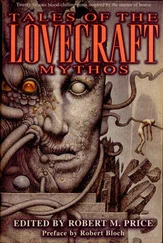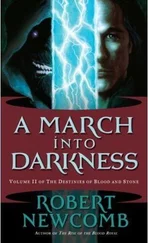Robert Pirsig - Lila. An Inquiry Into Morals
Здесь есть возможность читать онлайн «Robert Pirsig - Lila. An Inquiry Into Morals» весь текст электронной книги совершенно бесплатно (целиком полную версию без сокращений). В некоторых случаях можно слушать аудио, скачать через торрент в формате fb2 и присутствует краткое содержание. Жанр: Современная проза, на английском языке. Описание произведения, (предисловие) а так же отзывы посетителей доступны на портале библиотеки ЛибКат.
- Название:Lila. An Inquiry Into Morals
- Автор:
- Жанр:
- Год:неизвестен
- ISBN:нет данных
- Рейтинг книги:3 / 5. Голосов: 1
-
Избранное:Добавить в избранное
- Отзывы:
-
Ваша оценка:
- 60
- 1
- 2
- 3
- 4
- 5
Lila. An Inquiry Into Morals: краткое содержание, описание и аннотация
Предлагаем к чтению аннотацию, описание, краткое содержание или предисловие (зависит от того, что написал сам автор книги «Lila. An Inquiry Into Morals»). Если вы не нашли необходимую информацию о книге — напишите в комментариях, мы постараемся отыскать её.
Lila. An Inquiry Into Morals — читать онлайн бесплатно полную книгу (весь текст) целиком
Ниже представлен текст книги, разбитый по страницам. Система сохранения места последней прочитанной страницы, позволяет с удобством читать онлайн бесплатно книгу «Lila. An Inquiry Into Morals», без необходимости каждый раз заново искать на чём Вы остановились. Поставьте закладку, и сможете в любой момент перейти на страницу, на которой закончили чтение.
Интервал:
Закладка:
Redford is saying this but as he is saying it he is becoming somebody real. It’s like The Purple Rose of Cairo, where a character comes off the screen and shares the life of one of the audience. What is he saying?
Every time I go back I like it less, he says. I grew up there, you know… I remember what it used to be like… And I resent what’s happened to it… He keeps watching Phædrus for reactions.
I still have a lot of beautiful memories from California, Phædrus says, finally taking hold.
Did you live there?
I lived next door once, in Nevada, Phædrus says.
He is expected to speak. He speaks: a jumble of random sentences about California and Nevada. Deserts and pines and rolling hills, eucalyptus trees and freeways and that sense of something missed, something unfulfilled, that he always gets when he is there. This is just rilling time now, developing rapport, and as Redford listens intently, Phædrus gets the feeling this is his normal habit. Real stage presence. He’s just flown across the whole country, probably talked to a lot of people before that, yet he sits right here with his famous face listening as though he had all the time in the world, as though nothing of any importance had occurred before he walked in this room and nothing of importance was waiting for him after he walked out.
The rambling goes on until a common point of connection is found in the name of Earl Warren, the former Supreme Court chief justice, who Phædrus says represents a kind of personality not too many people think of as Californian. Redford concurs wholeheartedly, revealing personal values. He was our governor, you know, Redford says. Phædrus says yes, and that Warren’s family came from Minnesota.
Is that right? Redford says, I didn’t know that.
Redford says he’s always had a special interest in Minnesota. His movie Ordinary People was a Minnesota story, although they filmed it in northern Illinois. His college roommate came from Minnesota, and he’d visited his house there and never forgotten it.
Where did he live? Phædrus asks.
Lake Minnetonka, Redford says. Do you know that area?
Sure. The first chapter of my book touched down for a second at Excelsior, on Lake Minnetonka.
Redford looks concerned, as though he had missed an important detail. There’s something about that area… I don’t know what it was…
There was a certain "graciousness," Phædrus says.
Redford nods, as though that is right on.
There was a Minneapolis neighborhood called "Kenwood" that was the same way. People there seemed to have that same Earl Warren "charm" or "graciousness" or whatever it was.
Redford stares at him intensely for a moment. It’s an intensity he never shows on the screen.
What caused it? he asks.
Money, Phædrus answers, but then, realizing that isn’t quite right, he adds, and something else too.
Redford waits for him to continue.
There was a lot of old wealth out there, Phædrus says. Fortunes from the lumber days and the early flour mill days. It was easier to be gracious when you had a maid and chauffeur and seven other servants running around the place.
Did you live near Lake Minnetonka?
No, nowhere close, but I used to go to birthday parties there back in the thirties when I was a kid.
Redford looks engrossed.
Phædrus says, I wasn’t one of the rich kids. I was on a scholarship at a school in Minneapolis where the rich kids went… by chauffeur usually.
In the morning these big, long, black Packard limousines would pull up outside the school and a black-uniformed chauffeur would jump out and dash around and open up the back door and this little kid would pop out. In the afternoon the limousines and chauffeurs would all be back again and the kids would pop in, one kid to a limousine, and they’d be off to Lake Minnetonka.
I used to ride my bike to school and sometimes I’d see in my mirror one of these big Packards was coming up behind me and I’d turn and wave to the kid inside and he’d wave back and sometimes the chauffeur would wave too, and the funny thing is I always knew that kid was the one who envied me. I had all the freedom. He was a prisoner in the back of that black Packard, and he knew it.
What school was that?
Blake.
Redford’s eyes become intense. That’s the school my roommate went to!
Small world, Phædrus says.
It certainly is! Redford’s excitement indicates something has connected here, a high spot in the surface of things that indicates some important structure underneath.
I still have kind memories of it, Phædrus says.
Redford looks as though he would like to listen some more but that, of course, is not why he is here. After some more conversation about desultory subjects, he comes to the matter at hand.
He pauses and then says, I guess I should say, first of all, that I admire your book greatly and feel challenged and stimulated by it. The ideas about "Quality" are what I’ve always thought. I’ve always done it that way. I first read it when it first came out and would have contacted you then but was told that someone else had already bought it.
A funny woodenness has crept into his speech, as though he had rehearsed all this. Why should he sound like a poor actor? I really would like to have the film rights to this book, Redford says.
You’ve got them, Phædrus says.
Redford looks startled. Phædrus must have said something wrong. Redford’s biographies said he was unflappable , but he looks flapped now.
I wouldn’t have gotten this involved if I hadn’t intended to give it to you, Phædrus says.
But Redford doesn’t look overjoyed. Instead he looks surprised, and retreats to somewhere inside himself. His engrossment is gone.
He wants to know what the previous film deals were. It’s had quite a history, Phædrus says, and he relates a succession of film options that have been sold, and allowed to lapse for one reason or another. Redford is back to his former self, listening intently. When that subject is covered they turn cautiously to the question of how the book will be treated. Redford recommends a writer whom Phædrus has already met. Phædrus says OK.
Redford wants to make full use of a scene where a teacher faces a classroom of students for a whole hour and says nothing, until by the end of the hour they are so tense and frightened they literally run for the door. Apparently he wants to build the story in terms of flashbacks within that scene. Phædrus thinks that sounds very good. It is remarkable the way Redford has homed in on the book. For that scene he completely bypasses all the road scenes, all the motorcycle maintenance, where other script writers have bogged down, and goes right to the classroom, which was where the book started — as a little monograph on how to teach English composition.
Redford says that the road scenes will be made on location. He says that Phædrus can visit the sets whenever he wants to, but not every day. Phædrus doesn’t know what this involves.
The central problem of abstract ideas comes up. The book is largely about philosophic ideas about Quality. Big commercial films don’t show ideas visually. Redford says you have to condense the ideas and show them indirectly. Phædrus is not sure what that means. He would like to see how this is going to be done.
Redford senses Phædrus' doubts and warns that, No matter how the film is done, you won’t like it. Phædrus wonders if he says this just to keep himself covered. Redford talks about how the author of another book he filmed saw the movie and tried to like it but you could see that no enthusiasm was there. That was hard to take, Redford says, and then adds, But that’s the way it always seems to happen.
Читать дальшеИнтервал:
Закладка:
Похожие книги на «Lila. An Inquiry Into Morals»
Представляем Вашему вниманию похожие книги на «Lila. An Inquiry Into Morals» списком для выбора. Мы отобрали схожую по названию и смыслу литературу в надежде предоставить читателям больше вариантов отыскать новые, интересные, ещё непрочитанные произведения.
Обсуждение, отзывы о книге «Lila. An Inquiry Into Morals» и просто собственные мнения читателей. Оставьте ваши комментарии, напишите, что Вы думаете о произведении, его смысле или главных героях. Укажите что конкретно понравилось, а что нет, и почему Вы так считаете.











